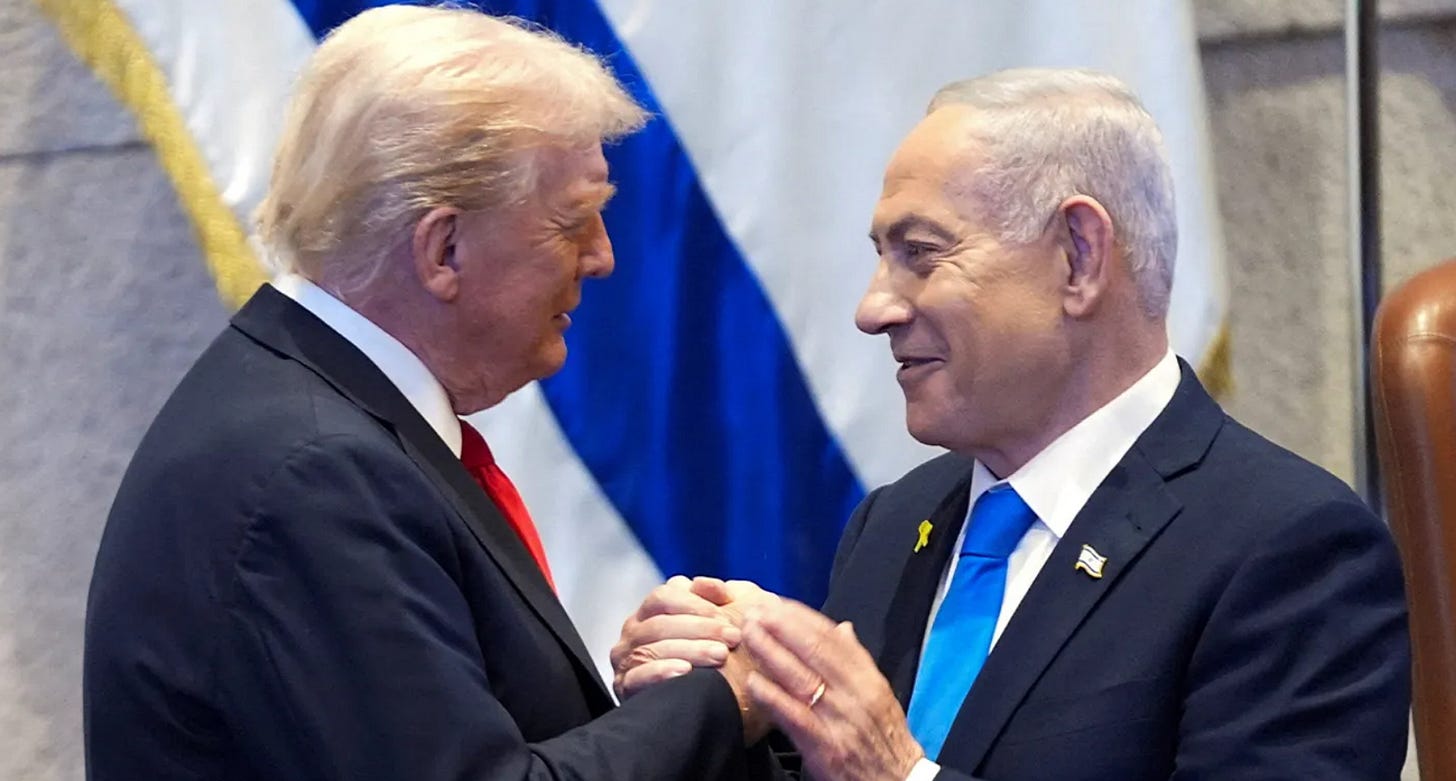Call it Anything but Peace
Kushner, Trump and Netanyahu “hand craft” income, power and vanity into a product they call “peace.” Most of us call it greed and murder.
There is very little to celebrate when we talk about the end of what’s being called the Palestinian-Israeli war, though I bristle at that term. War implies combatants. War suggests some rough parity of forces. What we witnessed over the past two years was something else entirely—a crime that began with Hamas’s inexcusable violence against close to 2,000 Israeli citizens, followed by a calculated slaughter that three dangerous men transformed into opportunity while the world watched on the screens in our pockets.
Benjamin Netanyahu needed it to stay out of prison. Donald Trump needed it for a Nobel Prize. Jared Kushner saw waterfront property. And 67,000 Palestinians—seventy percent of them women and children—paid the price for these men’s ambitions.
If Netanyahu, Trump, and Kushner were consumer products, they would require the sort of warning labels we place on toxic substances. Instead, they are world leaders, and that dissonance should alarm us far more than it apparently does.
Netany…



